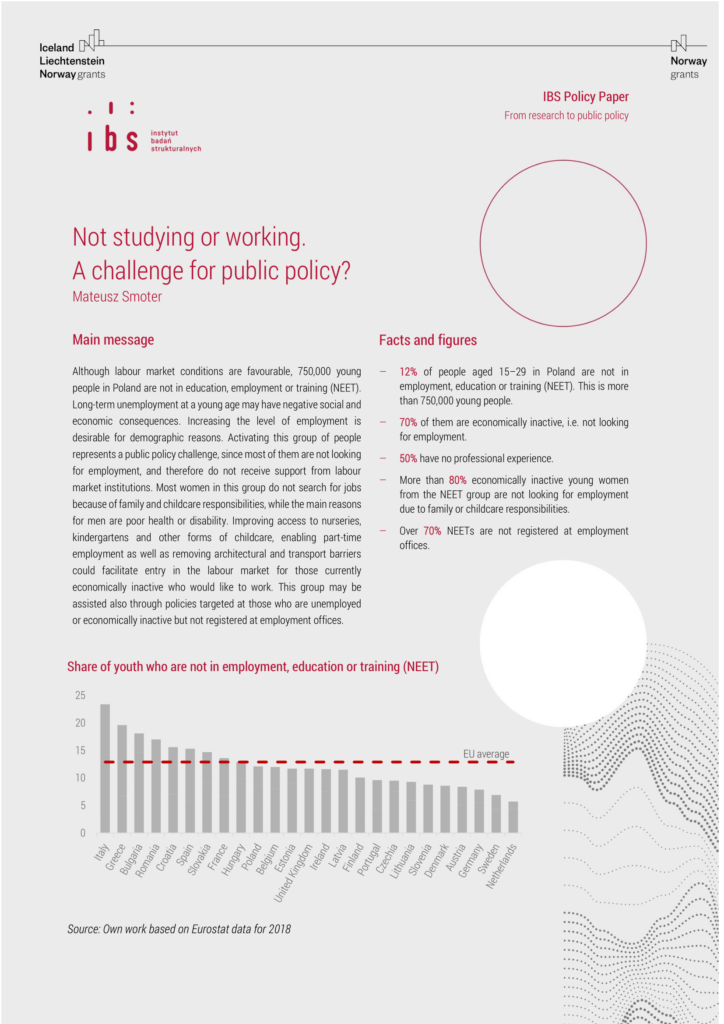Although labour market conditions are favourable, 750,000 young people in Poland are not in education, employment or training (NEET). Long-term unemployment at a young age may have negative social and economic consequences. Increasing the level of employment is desirable for demographic reasons. Activating this group of people represents a public policy challenge, since most of them are not looking for employment, and therefore do not receive support from labour market institutions.

This publication was created as part of the “Youth Employment PartnerSHIP” project, which seeks to combat unemployment among young people. It measures the effectiveness of instruments to support young people who aren’t working or studying in four countries: Poland, Spain, Italy and Hungary. The project is financed by Iceland, Lichtenstein and Norway through the EEA and Norway Grants Fund for Youth Employment and co-financed from the funds granted for science in 2018-2022 for the implementation of international projects. I would like to thank Jan Rutkowski for support in preparing this policy paper and Iga Magda for helpful remarks and comments. The content of this publication reflects the opinions of the author, which may diverge from the position of the Institute for Structural Research. The usual disclaimers apply. Own work based on Eurostat and Statistics Poland (GUS) data. These institutions are not liable for the presented results and conclusions.

